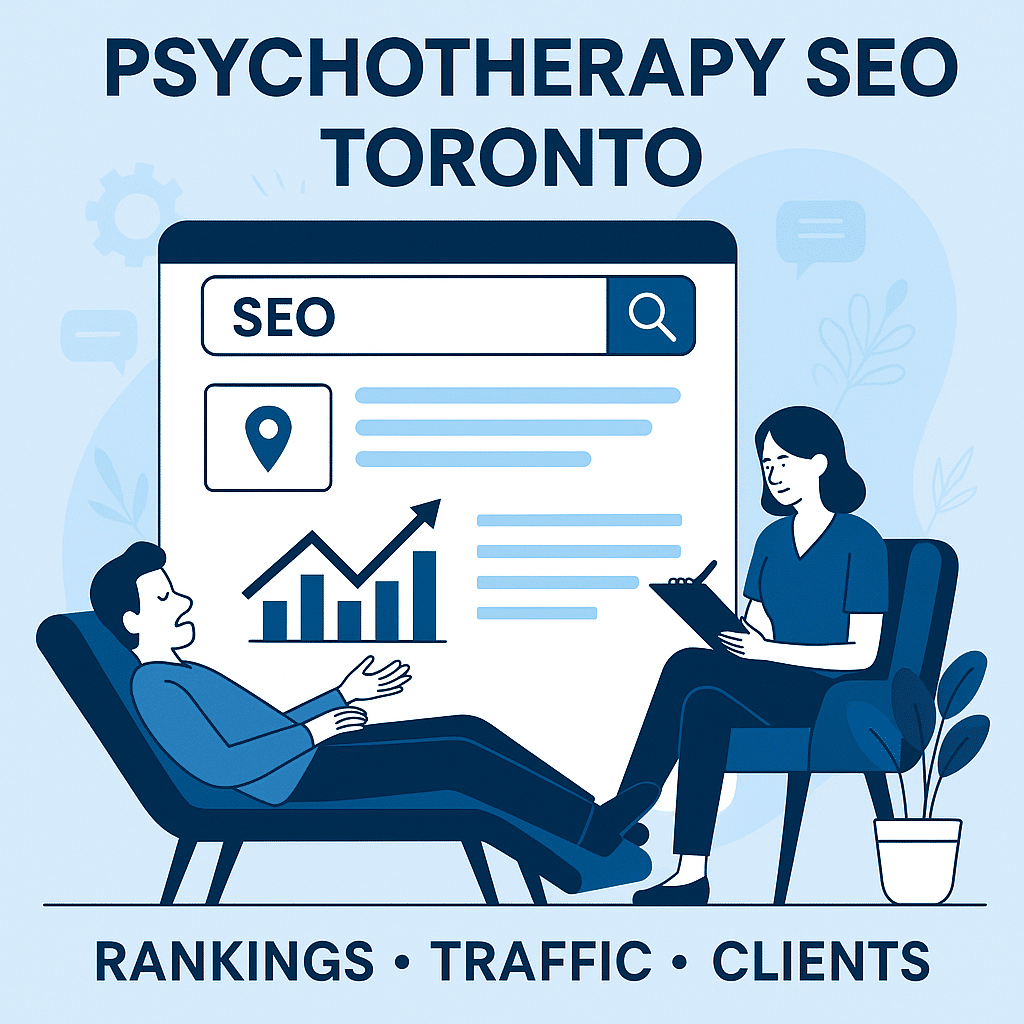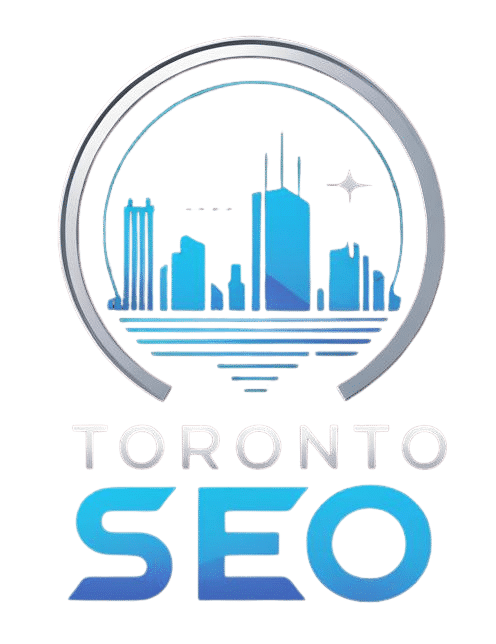How to Attract More Clients Through Google

In a city as competitive as Toronto, being an excellent psychotherapist isn’t enough — you need to be discoverable online. When potential clients are searching for therapy services, they turn to Google. If your practice doesn’t show up on the first page, you’re invisible to the people who need you most.
This guide dives deep into Psychotherapy SEO in Toronto — breaking down exactly how to rank higher, attract more qualified leads, and grow your private practice with predictable, organic traffic.
Why SEO Matters for Psychotherapists in Toronto
Clients Look Online First
Before reaching out, most people search for things like:
“trauma therapist Toronto”
“relationship counselling downtown Toronto”
“anxiety therapy near me”
They’ll click on the first few results they trust. If your website isn’t there, you’re not part of the decision.
Paid Ads Are Expensive and Less Trusted
Google Ads for therapy services are costly — and users are more likely to trust organic listings over paid ones, especially in a sensitive niche like mental health.
SEO Builds Long-Term Authority
Unlike ads that stop when your budget ends, SEO creates a steady flow of traffic over time. It positions you as an authority, not just a provider.
Step-by-Step SEO Strategy for Psychotherapists in Toronto
1. Set Up and Optimize Your Google Business Profile
Your Google Business Profile (GBP) is critical for local rankings — especially in Google Maps. Ensure:
Business name exactly matches your practice name
Correct NAP (Name, Address, Phone)
Use a 416 / 647 / 437 Toronto number
Add categories like “Psychotherapist,” “Mental Health Service,” “Counselor”
Write a keyword-rich description
Upload professional headshots and images of your therapy space
Collect Google reviews consistently
Bonus: Post regular updates, quotes, or wellness tips on GBP to show activity.
2. Use Location-Based, Intent-Driven Keywords
Here are some high-converting keyword ideas:
trauma therapist Toronto
depression counselling Toronto
anxiety therapy downtown Toronto
couples therapy North York
therapy for burnout Toronto
virtual psychotherapy Ontario
EMDR therapy Toronto
Use them in:
Homepage titles and meta descriptions
H1/H2 headings
Service pages
Blog articles
Alt text for images
3. Create Individual Service + Location Pages
Google favors specificity. Instead of a single “Services” page, create targeted pages such as:
/anxiety-therapy-toronto//relationship-counselling-downtown//emdr-therapy-east-toronto/
Each page should include:
Clear H1 title with keyword
Service explanation (400–700 words)
Client benefits and therapeutic approach
Testimonials (with consent)
CTA (Book a Free Consultation / Contact Now)
4. Build Local Authority with Backlinks
Psychotherapy SEO in Toronto requires high-quality backlinks from relevant, local, or authoritative sources. Start with:
Guest blog posts on mental health websites
Partnering with wellness coaches, yoga studios, or local schools (request links)
Cited research on psychology portals or news outlets
5. Review Strategy That Builds Trust + Rankings
Reviews are trust signals. They’re also an SEO ranking factor. Implement a review request system:
Ask satisfied clients to leave a Google review
Provide a simple link via SMS or email
Aim for at least 30–50 reviews with 4.8+ average
Respond to every review professionally
Include keywords naturally in your replies
Technical SEO Essentials for Therapist Sites
Make sure your website is optimized for performance and visibility:
Mobile-friendly (most therapy searches happen on phones)
SSL secured (HTTPS)
Page speed under 3 seconds
Clean URLs and structured navigation
Clear CTA buttons (Schedule a Session, Free Consult, Contact)
Use schema markup for “Medical Organization” or “LocalBusiness”
Content Strategy That Connects and Converts
Blog content helps you rank for long-tail questions and educates potential clients before they reach out. Post articles like:
“5 Signs You’re Experiencing Burnout (and What to Do About It)”
“How Therapy Helps with Anxiety: A Toronto Perspective”
“Should You Try EMDR Therapy for Trauma?”
Each article should:
Be at least 800–1200 words
Link internally to your services
Include keywords naturally
Be written in a conversational, trauma-informed tone
Internal Linking Structure Example
Strengthen site authority with proper linking:
Learn more about our anxiety counselling in Toronto
See how EMDR therapy in Toronto helps with trauma
Contact our clinic for a free consultation
High-Authority External Links (DA 50+)
Linking out to credible resources boosts E-E-A-T (Experience, Expertise, Authority, Trust).
FAQ: SEO for Psychotherapists in Toronto
How long does it take to rank?
Expect to see early movement in 2–3 months, with solid local rankings in 4–6 months if SEO is done consistently.
Do I need blog posts as a therapist?
Yes — blog content not only boosts SEO but builds emotional trust with readers before they reach out.
Can I do SEO without using ads?
Absolutely. Many successful Toronto therapists rank and fill their calendars without spending a cent on ads.
Should I mention specific conditions or client types?
Yes. Google prefers specificity. List terms like “PTSD,” “burnout,” “relationship stress,” and more.
Conclusion: Be the Therapist Clients Find First
You already have the skills to help people heal. Now it’s time to make sure they can actually find you. With a smart Psychotherapy SEO strategy, your Toronto practice can appear at the top of search results — where trust begins.
By optimizing your website, Google profile, content, and authority signals, you’ll create a steady, reliable stream of new clients who are already looking for exactly what you offer.

